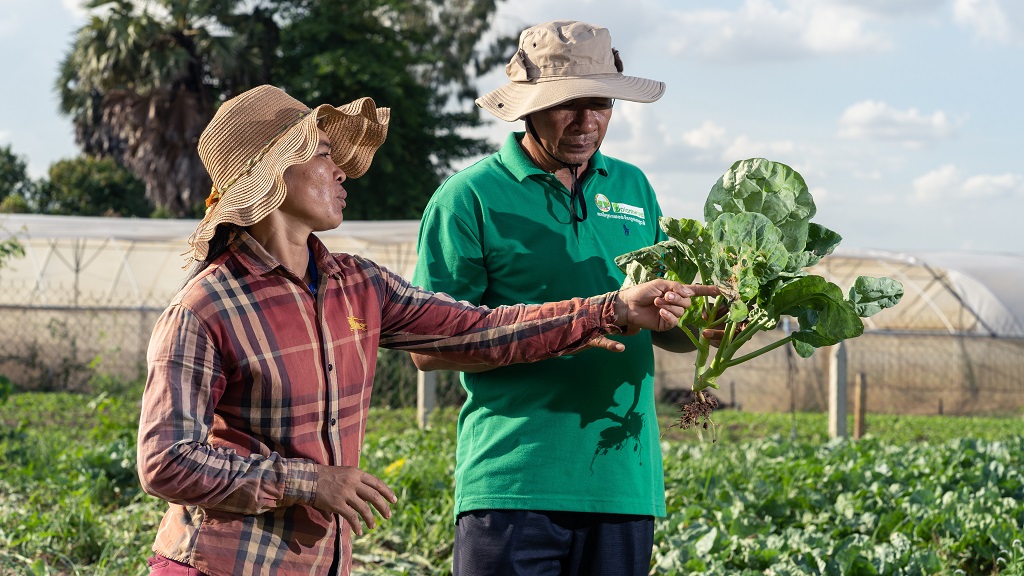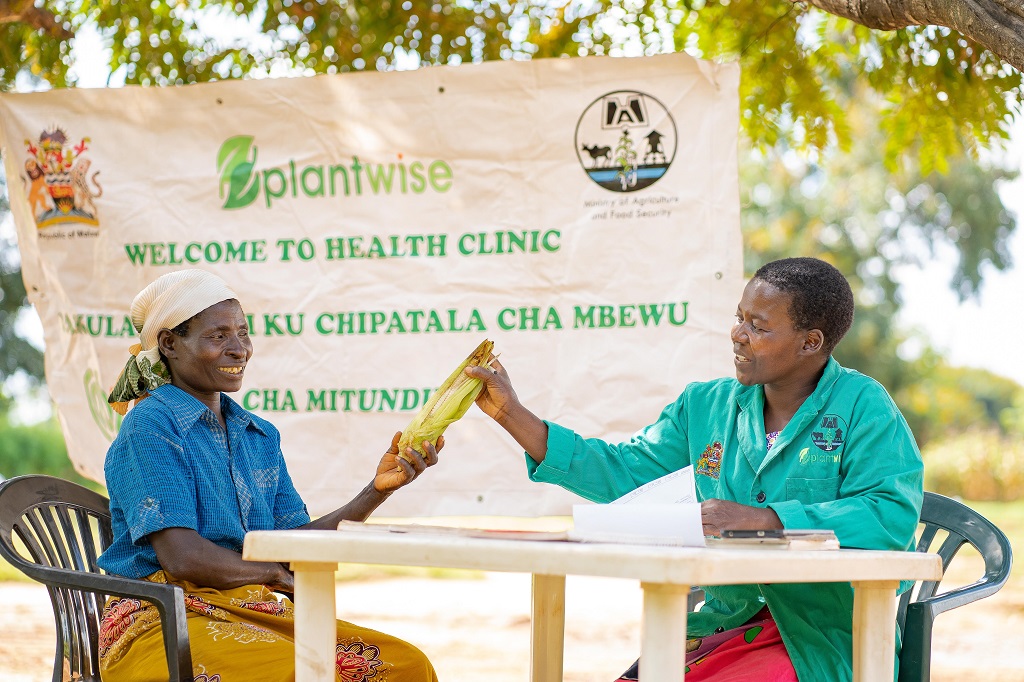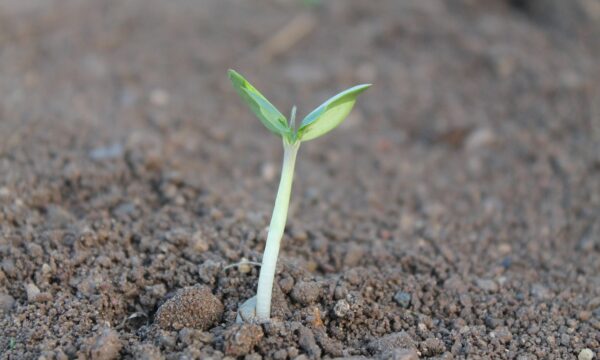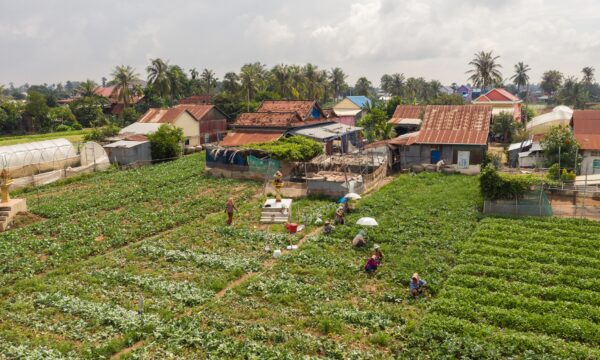
CABI’s work in supporting agricultural decision-making for smallholder farmers using innovative digital tools has been featured in a new report by the United Nations Framework Convention on Climate Change (UNFCCC), the United Nations body coordinating climate action around the world.
The report, for the Climate Technology Executive Committee (TEC) explores innovative approaches to stimulating the uptake of existing climate technologies for adaptation and mitigation, particularly partnerships between governments, research organisations, and the private sector. It focuses on examples where approaches have achieved impact across multiple locations, and provides recommendations for the UN, governments, and public and private partners for enabling impact at scale.
CABI’s Plantwise programme is featured as a best practice example of leveraging technology to achieve positive impacts with smallholder farmers. The report highlights how Plantwise has been able to reach over 44 million farmers across 34 countries with high-quality technical advice to lose less and grow more, and used data collected throughout the programme to inform national-level policies for improved plant health systems.
The report notes that,
“The innovative aspect of CABI’s approach lies in the way it approaches farmers, not by confronting them with new solutions for sustainable farming, but by facilitating knowledge exchange at the community level, leaving it up to the farmers to decide whether or not to change.”
Plant Clinics are a key part of the Plantwise programme. Similar to a human health clinic, specially trained agriculture advisors – Plant Doctors – host drop-in sessions on a regular basis in farming communities across the countries where Plantwise operates, allowing farmers to ask for advice on the issues which matter most to them about their farm. Plant Doctors can consult the Plantwise Knowledge Bank to help diagnose issues and support farmers with farm management advice specific to their context. This trusted relationship between farmers and Plant Doctors helps ensure the scientific information provided is properly contextualised and understood.

Supporting farmers with high-quality, scientifically rigorous advice in ways which are accessible and trusted is critical in enabling them to adapt to the pressures and threats of climate change.
Even if the world is able to limit global warming to just 1.5°c, there will still be severe and often catastrophic impacts felt around the world, mostly by poor smallholder farmers in the global south, whose crops, food and livelihood security remain threatened by rising temperatures, more extreme weather, and surging pest and disease threats.
Approaches like Plantwise can be important in ensuring farmers have the best available knowledge to confront these challenges, feed communities locally and globally, and live healthy, prosperous and resilient lives.
Read the UNFCCC report: Innovative approaches to accelerating and scaling up climate technology implementation for mitigation and adaptation.
Photos ©CABI
Acknowledgement
CABI gratefully acknowledges the financial support of the UK Foreign, Commonwealth & Development Office (FCDO), the Swiss Agency for Development and Cooperation (SDC), the Directorate General for International Cooperation (DGIS, Netherlands), the International Fund for Agricultural Development (IFAD), the Australian Centre for International Agricultural Research (ACIAR), and the Chinese Ministry of Agriculture and Rural Affairs for the Plantwise programme.
1 Comment
Leave a Reply
Related News & Blogs
How plant clinics are strengthening crop health services in Bangladesh
When the first-ever plant clinic in Bangladesh opened in Dhaka in 2013, it initially faced a lack of interest due to its novelty and limited awareness among farmers. However, it went on to expand, providing advice to over 17,000 farmers and led to the…
2 July 2025





I can see alot is changing in Agriculture sector and i congratulate you for the role you are playing Agricultural technology development.